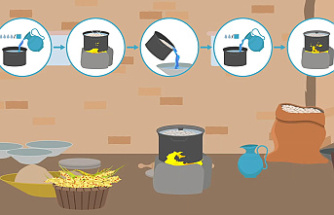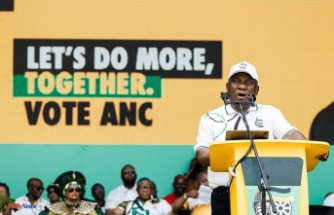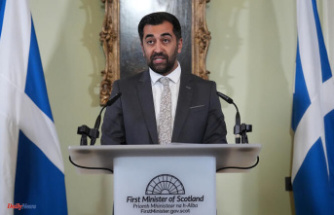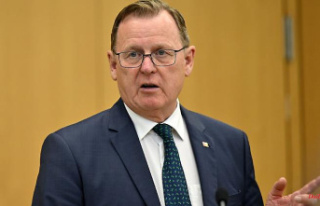In the opinion of Antonio Guterres, the Secretary General of the United Nations, it is an “unprecedented” agreement concluded between two countries at war. Ukraine and Russia ended up signing this Friday, July 22, with Turkey and the UN, the agreement on the export of Ukrainian cereals to the Black Sea.
kyiv and Moscow signed two identical but separate texts, at the request of Ukraine, which refused to initial any document with Russia. The four delegations met in the grounds of Dolmabahçe Palace, on the Bosphorus in Istanbul, in the presence of Antonio Guterres, Turkish President Recep Tayyip Erdogan as well as Turkish and Russian Ministers of Defense and the Ukrainian Minister of Infrastructure .
The ceremony took place under the flags of the protagonists, those of Russia and Ukraine carefully separated by the blue banners of the UN and red of Turkey, which has offered itself as a mediator since the start of the invasion. Russian, February 24.
This agreement, fiercely negotiated since April under the leadership of Antonio Guterres, who arrived urgently in Istanbul on Thursday evening, will relieve the countries dependent on the Russian and Ukrainian markets - 30% of the world wheat trade between them. Recep Tayyip Erdogan admitted that it had "not been easy" to get there, and hoped that the signing of this agreement, which comes almost five months after the start of the conflict, would "strengthen the hope of end this war". According to the World Food Program (WFP), 47 million additional people have been exposed to "acute hunger" since the start of the war.
Under the terms of this agreement, "secure corridors" will allow the movement of merchant ships in the Black Sea, which "both parties have undertaken not to attack", said a United Nations official who requested anonymity.
The negotiators gave up on clearing the Black Sea of mines - mainly laid by the Ukrainians to protect their coasts: "Clearing mines would have taken too long", justified the UN, which specified that "Ukrainian pilots" would clear the way for the cargo ships in territorial waters. Ukraine has suggested that its exports start from three ports - Odessa, Pivdenny and Chornomorsk - and hopes to increase their number in the future.
The agreement will be valid for "120 days", or four months, the time to get out the approximately 25 million tonnes piled up in silos in Ukraine as a new harvest approaches. A Joint Coordination Center (JCC) is to be established this weekend in Istanbul with representatives from all parties and the United Nations.
Inspections of ships departing from and heading to Ukrainian ports will take place under the supervision of the CCC, in one of the ports of Istanbul, in order to meet the concerns of Moscow, which wants to be sure that the cargo ships will not bring arms to Ukraine.
Russia has finally obtained guarantees that Western sanctions will not apply, either directly or indirectly, to its own exports of agricultural products and fertilizers. “Even if Russian (agricultural) products are not affected by the sanctions, there are blockages concerning maritime transport, insurance and the banking system,” Turkish Foreign Minister Mevlut Cavusoglu explained on Thursday.
In addition, said a diplomat in New York, the United States has offered "guarantees" so that large tonnage ships will be provided to Russia to facilitate the export of its grain and fertilizers. Due to the sanctions, international logistics companies that own such buildings are reluctant to work for Moscow. The United States had welcomed the agreement on Thursday and warned that they held "Russia responsible for (its) implementation".
But mistrust remains in kyiv: "No Russian escort and no Russian presence in our ports. In case of provocation, immediate military response", tweeted Friday Mikhaïlo Podoliak, adviser to the Ukrainian presidency. The agreement "must be fully implemented", for his part pleaded the boss of the UN.












